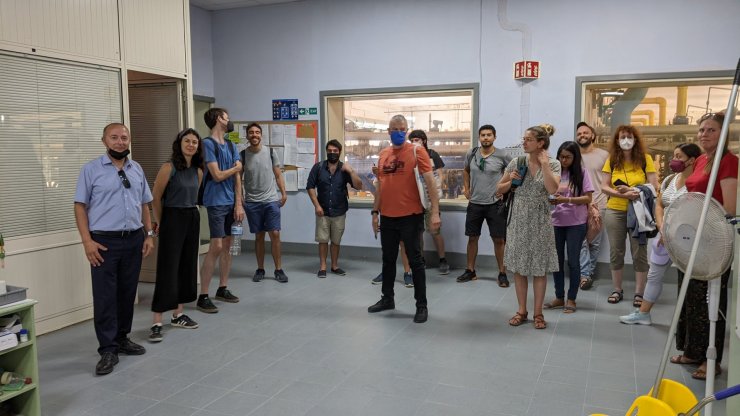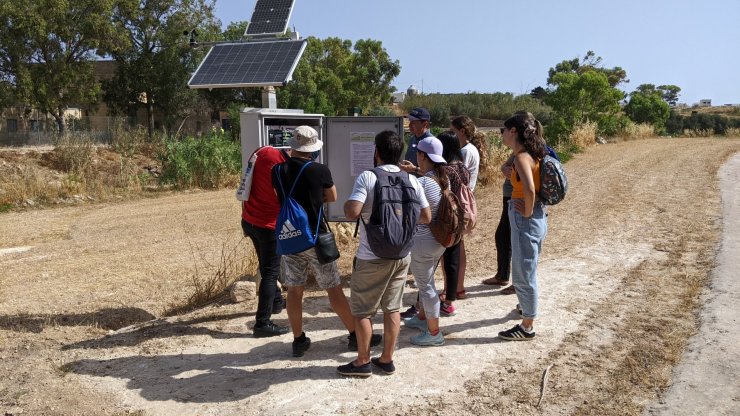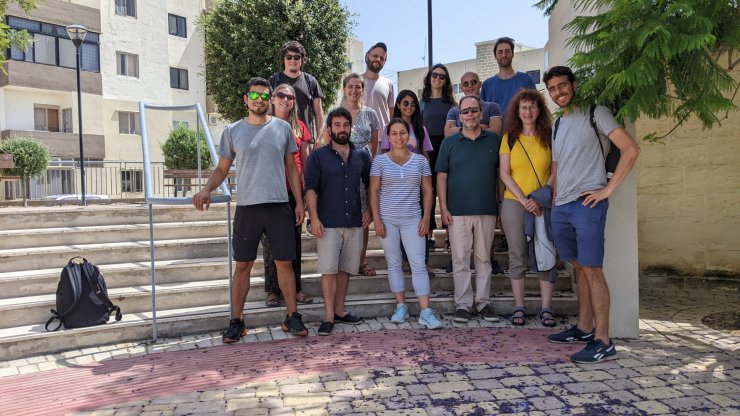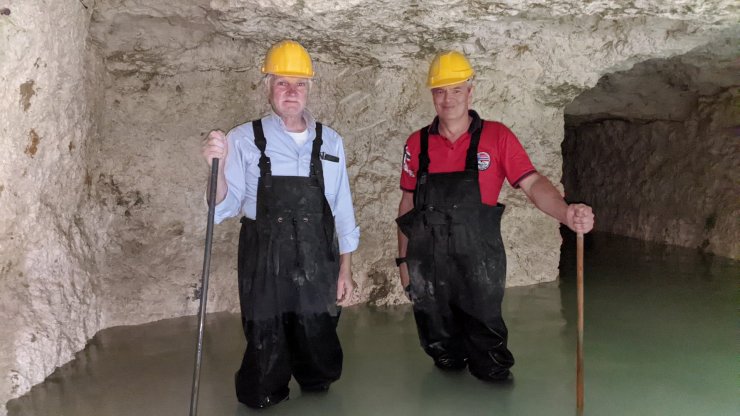

A number of MARSoluT's Thematic Training Units (TTUs) that were initially planned to be connected to specific technical workshops had to be postponed due to the COVID-19 pandemic situation, with the aim to perform them when overall conditions had improved. Training Workshop 4 was therefore planned to be held in Malta at a time with less travel restrictions or no travel restrictions at all. Eventually, the training workshop was held from 21. to 23. June 2022.
The aim of the Training Workshop was to get an overview of the current policies and regulations on water management and MAR, and on EU legislative processes necessary to implement any regulations or procedures in general and water related procedures in particular, and to get insights into the environmental economics and the economics of MAR schemes. Through this, it was envisaged that the research fellows broaden their knowledge beyond technical topics by learning about legal and economic processes which are necessary to know about and consider when it comes to the implementation of MAR projects. Another significant objective of the workshop was to carry out the planned site visit to learn about the special water management needs on an island with semi-arid climate and limited natural water resources.
The workshop was organised by was organised by Manuel Sapiano (Energy and Water Agency, Malta - EWA) with the support of the project's partner organisation Water Services Corporation (WSC), Malta. It took place at the GHAJN National Water Conservation Awareness Centre, Triq Ghajn Qajjet, Ir-Rabat, Malta. The following topics were addressed:
Water Management in Malta - Paul Micallef (EWA)
EU Legislative and Regulatory Processes - Ondine Gaerty (EWA)
Water Governance - Kevin Gatt (University of Malta)
Malta's 3rd River Basin Management Plan (RBMP) - Manuel Sapiano (EWA)
International Comparison of MAR Regulations and guidelines - Enrique Fernandez Escalante (Tragsa)
Applying Environmental Economics to the Water Sector - Jonathan Spiteri (University of Malta)
Economical aspects of MAR. Examples and benchmarking - Enrique Fernandez Escalante (Tragsa)
Site visits: Groundwater Galleries and Groundwater Monitoring Programme at Bakkja pumping station; Sea-Water Desalination Plant, 'New Water' (water reuse) Sewage Treatment Plant.
In the frame of the ESR forum, the research fellows were able to meet within their peer group to discuss any issues concerning their research, potential problems with their research work including supervision, conduct of secondments etc.
The German ambassador to Malta, His Excellency Walter Haßmann, paid a short visit to the workshop to find out more about the MARSoluT project – which is coordinated by a German university – and about the GHAJN National Water Conservation Awareness Centre.




MARSoluT - Managed Aquifer Recharge Solutions Training Network - is a four-year Marie Skłodowska-Curie Actions (MSCA) Innovative Training Network (ITN) funded by the European Commission.
Coordination & Contact:
Prof. Dr. Christoph Schüth
Darmstadt Technical University
Applied Geosciences
Schnittspahnstr. 9
64287 Darmstadt
Germany
Follow us